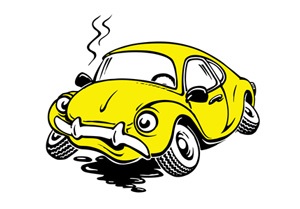[ad_1]
Industry organisation the Metal Recyclers’ Association of South Africa (MRA) says the six-month ban on the export of metal proposed by the Department of Trade, Industry and Competition (DTIC), would detrimentally affect the price of all South African scrap metal, and, in turn, negatively impact the recycling sector and all sources of scrap generation, including manufacturing, construction and mining, as well as the informal sector.
The DTIC on August 6 published draft proposals for a six-month export prohibition on scrap and waste metal, including copper cable, together with a permit system for the export of specified semi-processed metal products to address widespread theft of copper cable and other forms of metal from public infrastructure and issued a call for public comment on the proposed policies.
This is the first of three envisaged phases, with further actions proposed in future that include a new, enhanced registration system for scrap buyers and sellers to improve monitoring, policing and law-enforcement; limitations on the ports and potentially border posts to be used for trade in scrap metal; and changes to the legislation to make it more difficult for stolen copper and metal to be traded.
Several of MRA’s members export scrap metal, and may not survive the impact of a six-month ban on their businesses, the organisation says.
The association plans to discuss its response to the proposed policy this week, noting that some of the aspects of the proposals are worthy of support, while others are not.
MRA says the relief sought through the proposed policy is unlikely to deliver the expected impact because it will not address underlying challenges and infrastructure theft is only one of a number of challenges currently facing power utility Eskom.
The proposed policy will not help the manufacturing industry or the recycling sector, as the quantum of stolen infrastructure is only a fraction of the extent of legitimate scrap metal generated in the country, of about 3.5-million tons a year.
“Consequently, the effect of the policy will be to suppress the entire metal recycling sector and those who supply its product in the hope that it might stop some of the theft, as those conducting illicit activities such as theft and illegal smelting and/or smuggling are unlikely to heed the policy.
“In summary, the proposal seeks to apprehend those operating under the radar by constricting legitimate business, which does not make sense,” the association says.
Further, it argues, South Africa does not have capacity to consume all the scrap generated in the country.
“By working with recognised recycling and foundry associations, and not private companies who will be motivated by self-gain, we can achieve a long-term solution to metal theft that negatively impacts on public and private infrastructure.
“We can also achieve this by implementing a number of the valid points raised in the policy draft, such as increased policing, a ban on cash transactions, increased licensing requirements and the regulation of semi-finished products created from scrap metal, such as copper ingots, among others,” it says.
Further, one of the MRA’s core functions is to regulate its members in terms of laws, and infrastructure theft is a major problem that the association continually seeks to address through education and the implementation of a strict code of conduct.
“However, the public should be reminded to keep the incidents of theft in perspective relative to the benefits of having a robust metal recycling sector with large-scale employment, the provision of essential raw materials for the manufacture of new metal product at a fraction of the costs associated with virgin ores, and the avoidance of metal waste clogging up limited landfill waste facilities,” the MRA states.
Meanwhile, the DTIC says the measures were developed following sustained damage to public infrastructure from criminal theft of electricity cables, power pylons, railway tracks, traffic lights and manhole covers that has reached crisis levels. Criminals are targeting public infrastructure that taxpayers have invested in to expand service delivery to communities across the country.
The economic damage of copper theft alone has been estimated at more than R45-billion annually. This was the findings in research commissioned by the DTIC from an independent research team from Genesis Analytics, it notes.
“Research found that the export of metal provides a crucial monetisation channel for criminals, and South Africa’s ports and borders are not adequately resourced to prevent the export of stolen scrap and semi-finished metal products,” the DTIC says.
[ad_2]
Source link

